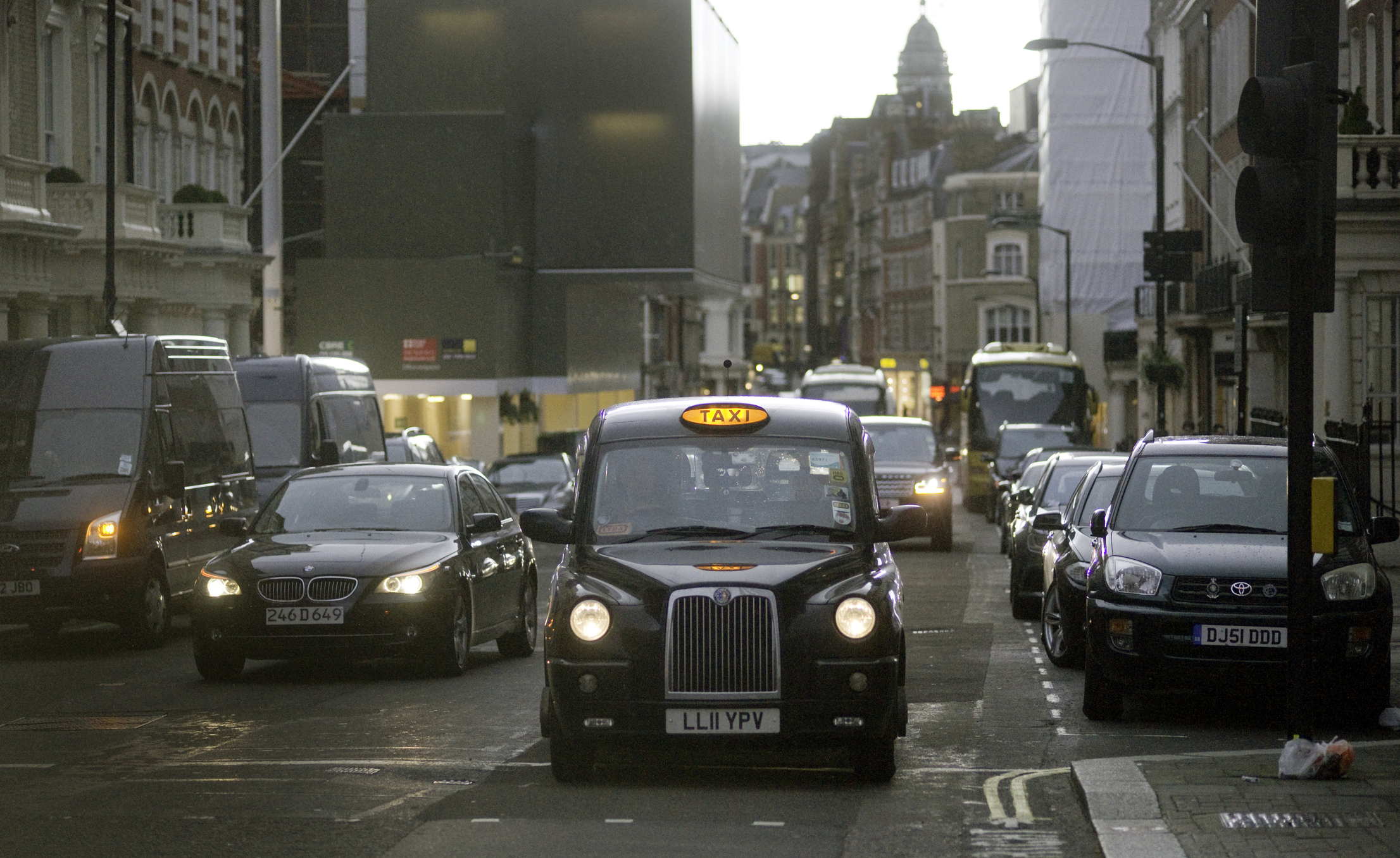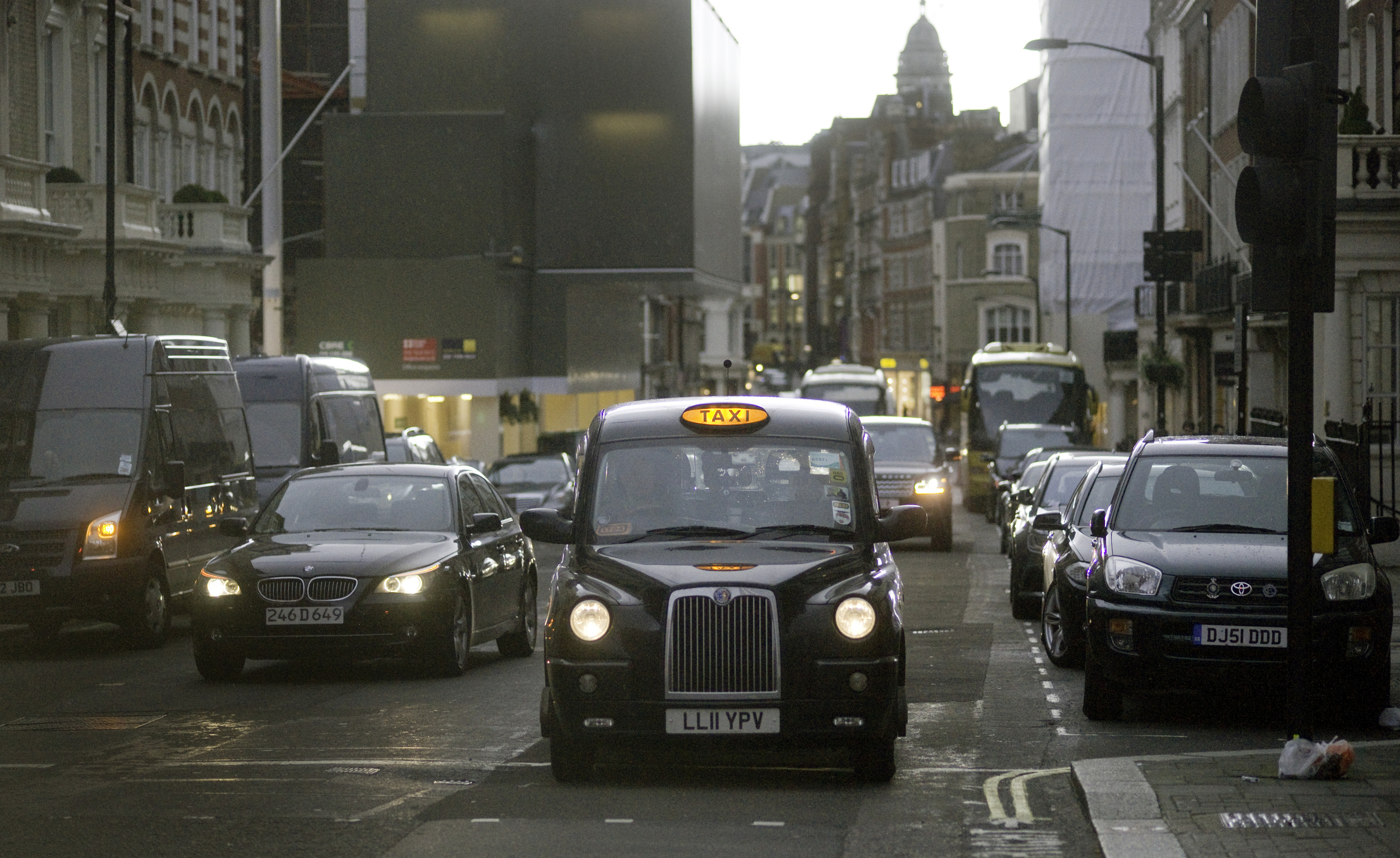It’s not easy to become a taxi driver in London. Since 1865, to operate a taxi, drivers have had to pass what’s known as “the Knowledge,” a grueling test of a person’s memory of the thousands of streets, landmarks, and driving routes within the city. Students typically study for years to prepare for the Knowledge test, which is considered one of the most difficult examinations a human being can undertake. The end result is London claiming, with good reason, “the best and most qualified cabbies in the world.”
[time-brightcove not-tgx=”true”]
Some London neuroscientists saw in cab drivers an opportunity to study how the brain might change in response to the heavy demand for navigational and spatial memory. In a famous study published in 2000, a group of 16 London cabbies underwent MRI brain scans, which showed that compared to people with other jobs, the cabbies had changes in their hippocampus: the brain region dedicated to memory and navigation. The more years people spent on the job, the larger their hippocampus.
The hippocampus is a part of the brain implicated in the development of Alzheimer’s disease, the most common form of dementia, which primarily affects the elderly and results in memory loss and navigational difficulties, among other symptoms. The study of London cabbies thus begged the question: might taxi drivers be more protected from developing Alzheimer’s disease than the average person?
With an aging global population, rates of Alzheimer’s disease on the rise, high costs of care for those with dementia, and an unpromising landscape for effective drugs, questions of how to prevent or slow progression of the disease are important for all of us—not just taxi drivers.
Read More: 9 Things You Should Do for Your Brain Health Every Day, According to Neurologists
In a new study published in The BMJ, we and our colleagues Vishal Patel and Michael Liu, also at Harvard, set out to study rates of Alzheimer’s deaths among taxi drivers and ambulance drivers, who rely on their memory to navigate on the fly.
We did so by taking advantage of newly available data linking death records of Americans to their occupation. In addition to studying Alzheimer’s deaths among taxi drivers and ambulance drivers, we looked at bus drivers, ship captains, and aircraft pilots: jobs that, while transportation-based, require people to mostly stick to a predetermined route, which might not lead to the same kind of changes in the hippocampus.
For more than 400 occupations, we measured the rate of death from Alzheimer’s disease. Importantly, we accounted for the age at which someone died. Alzheimer’s is predominantly a disease of old age, which means that occupations with lower life expectancies would be anticipated to have fewer Alzheimer’s related deaths, simply because people may not live to be old enough to develop the disease.
Our findings surprised us. We found that the two occupations with the lowest rate of Alzheimer’s death among all occupations studied were taxi drivers and ambulance drivers. Taken together, their risk of dying from Alzheimer’s disease was 56% lower than the general population at any given age. Taxi and ambulance drivers did not have lower rates of death from other forms of dementia for which the hippocampus may be less involved.
Read More: These Are the Best Ways to Improve Your Memory
In addition, bus drivers, aircraft pilots, and ship captains—the jobs with less spontaneous decision-making—had Alzheimer’s death rates typical of the rest of the population. This suggests that routine navigation along highly frequented routes might not act on the brain the same way. In fact, a 2006 follow-up study by the London researchers of both taxi and bus drivers found that years of experience led to enlargement of the hippocampus in taxi drivers, but not bus drivers.
While striking, our study is unable to establish that driving a taxi itself causes reduced rates of death from Alzheimer’s disease—it simply establishes a link, albeit a highly curious one. It may be, for example, that taxi and ambulance driving attract people who have naturally different hippocampi or have lower baseline risk of Alzheimer’s disease to begin with. After all, one might need a good memory to pass the Knowledge exam or make a career of driving a taxi or ambulance in traffic-ridden cities. We don’t think this explanation is likely to explain the entire difference, however. Taxi drivers, for example, have lower life expectancy than most other occupations, and particularly good memory early in one’s life might be expected to be positively correlated with education, lifetime income, and life expectancy.
Although our study and the London cabbies study raise more questions than they answer, they point to avenues for research into Alzheimer’s disease prevention. In the absence of highly effective treatments for Alzheimer’s disease, are there changes we could make to our daily lives to help reduce our risk? After all, the human brain is “plastic”: it adapts to the demands placed on it, which is how we are able to learn. Could we also force our brains to make adaptations that lower the risk for Alzheimer’s disease?
Read More: You Can Now Treat Depression With an App
We don’t know the answer to this question, but our study raises this as a hypothesis. You might wonder: what if we stopped using GPS navigation in our cars, forcing us to rely more heavily on memory to get around? Or more generally, might other cognitive activities that focus on improving navigational and spatial memory help?
Current research suggests there may be some cognitive activities, like games and simulations, that could help slow cognitive decline in the elderly, and research is ongoing. But many studies—even high-quality randomized trials—will inevitably fall short because no short-term intervention could possibly replicate the brain changes that may be brought on by a career where navigational and spatial memory are as important as they are in taxi or ambulance driving. Despite the claims of various smartphone games, there’s no activity that, if done over a lifetime, has been shown to reduce the risk of Alzheimer’s.
Confronting Alzheimer’s disease and other forms of dementia is a pressing public-health priority, both in the U.S. and abroad. The past several decades have seen a rapid expansion in the research community’s understanding of the brain and dementia, but highly effective treatments or prevention strategies for Alzheimer’s disease remain elusive.
We don’t know yet whether deleting your map apps does your brain any favors. But, as we’re learning from cabbies, it probably won’t hurt to flex your brain’s navigation muscles a little more—and maybe let yourself get lost every now and then.


